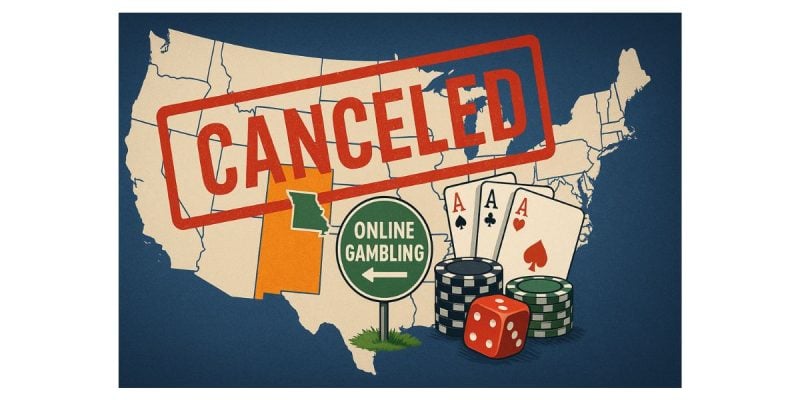So far, 2025 has been a difficult year for online gambling legislation.
More often than not, efforts by lawmakers to legalize online casinos have been blocked by stubborn governors who oppose iGaming. There were some bright spots, but those positive moments have been fleeting amid a bleak legislative landscape.
Online betting boom loses steam in 2025
The past six months have been discouraging for online gambling. Whereas online sports betting, casinos, and sweepstakes casinos boomed in the U.S. from 2018 to 2024, this year has lacked the usual momentum. Only one state is on track to launch online sports betting—Missouri—and only Illinois has shown any real potential to legalize online casinos.
Governors in Ohio, Maine stall online casino progress
Those brief moments of hope are overshadowed by a lack of national progress. Ohio Gov. Mike DeWine stopped short of saying he’d veto online casino legislation, stating that online casinos would “cause more pain and suffering in regard to addiction…I’m just not for it.” DeWine’s strong opposition effectively ended two iGaming legalization bills moving through the Ohio legislature.
Assuming legislators kill those bills, they could propose new ones when the Legislature convenes in the fall. However, real progress may have to wait until DeWine’s term ends in 2027. His stance is costing the state an estimated $500 million in annual tax revenue.
Maine Gov. Janet Mills refused to sign a bill that would have legalized online casinos for the state’s four federally recognized tribes, eliminating any chance of iGaming coming to Maine in 2025. Mills’ decision highlights the national divide on gaming policy: Most states are comfortable with online sports betting but remain cautious about online casinos. As a result, only seven states have iGaming, while more than 30 offer online sports betting.
California seeks to ban sweepstakes casinos
The most lucrative online gambling market in the country remains closed to any type of gaming expansion. California voters rejected a pair of propositions to legalize online sports betting three years ago. Now, lawmakers are advancing a bill to ban sweepstakes casinos as well. If the bill survives committees, passes both chambers, and receives Gov. Gavin Newsom’s signature, California would join a small number of states where the only gambling options are card rooms and brick-and-mortar tribal casinos.
Sports betting remains a long shot in Minnesota
On the sports betting front, Minnesota legislators declined to authorize a study that would assess the viability and impact of sports betting in the state. The reluctance to even examine the issue suggests that legalization may still be years away, especially for online wagering.
Illinois emerges as iGaming’s bright spot in 2025
Amid this wave of stalled efforts, one spark remains: Illinois Attorney General Kwame Raoul said earlier this month that he believes online casinos are a natural next step for the state’s gaming industry.
His optimism is significant—not only could Illinois become the eighth state to legalize online casinos, but it might also be poised the become the largest iGaming market in the nation. Based on May revenue reports from other iGaming states, PlayUSA predicts Illinois online casinos could average more than $260 million in monthly revenue.
What’s next for online gambling in 2025?
Looking ahead, there will likely be just one major development in online gambling this year. In December, Missouri is expected to launch both online and in-person sports betting. If everything goes according to plan, Missouri will be the only state to expand online gambling in 2025.
With most legislative sessions already concluded – and failed iGaming pushes in Ohio and Maine, plus a looming sweepstakes casino ban in California – the rest of 2025 is shaping up to be a bleak stretch for online gambling legislation.








